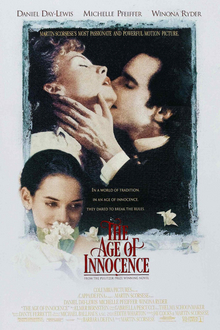Thank you all for attending yet another discussion of Autumn in August, where our attention now turns to Jane Austen and her final completed work, Persuasion.
While there have been other adaptations of this classic novel(as of this writing, two more are being filmed), I have a particular fondness for the 1995 film as it is the reason that I started reading Jane Austen in the first place.
Back when the movie debuted in US theaters, the critical acclaim for it made me interested in reading the book(and later seeing the film on home video) which then lead to more and more engagement with Austen's literary world. I guess you could say it imprinted Austen on me.
Persuasion is unlike most of Austen's work as it's leading lady Anne Eliot(Amanda Root) is not the usual young girl searching for love heroine. Rather, she's a woman in her late twenties, considered "out of bloom" by the standards of the day who lives with her vain widowed father Sir Walter(Corin Redgrave) and her equally awful older sister Elizabeth(Phoebe Nicholls).
Since Sir Walter and Elizabeth insist upon living above their means-"A barnonet must be seen to live like a baronet!"-the only recourse to save the family from out and out financial disgrace is to move to the city of Bath and rent out their estate to a fresh from the Napoleonic wars well off Navy man, Admiral Croft(John Woodvine) and his wife.
As it happens , that admiral is related by marriage to a former love interest of Anne's, Captain Frederick Wentworth(Ciaran Hinds).
Wentworth and Anne fell in love several years ago, intending to marry if not for the persuasion of Lady Russell(Susan Fleetwood), a family friend who gives motherly advice to all of the Eliots but to Anne especially.
With Sir Walter and Elizabeth only tolerating her at best(and treating her like a servant at worse), it's not surprising that Anne at 19 was willing to listen to Lady Russell at the time.
However, upon hearing that Wentworth might be back in her life, Anne has found that the decision she made back then perhaps wasn't the best one for her own happiness:
Anne is sent to stay with her married younger sister Mary Musgrove(Sophie Thompson), who always "fancies herself ill" and is a great complainer when things don't go her way.
With the Musgroves being way nicer people, Anne is happy to be at their homestead of Uppercross for now. Also, she hopes to avoid being in Wentworth's company even though his brother-in-law and sister (Fiona Shaw, who is a real delight along side Woodvine) are completely lovely folks to be around.
Wentworth does eventually make friends with the Musgroves-the daughters of the house are very happy to know him!-and meet up with Anne again. They are awkwardly polite for the most part, unsure of each other's true feelings.
However, on more than one occasion, it does appear that Wentworth, despite his attentions to one Musgrove girl, still has some regard for Anne there:
Before Anne rejoins her father and sister in Bath, an incident on a trip to the seaside town of Lyme Regis causes both Wentworth and Anne to wonder about their potential future together.
Upon reuniting in Bath, things are still uncertain between them as Anne is now being courted by her formerly estranged cousin Mr. Eliot (Samuel West).
Is Anne meant to marry Mr. Eliot and perhaps save her family estate or is this the time to truly follow her heart?
This film is so well done with director Roger Michell bringing such a natural setting and tone to the story. The characters look and feel like actual people instead of fancy dress up figures.
The script by Nick Dear also drops a few references to the wider world with the now ending war against Napoleon(and possibly starting up again!) and the changes in social class with the now enriched military veterans.
As some Austen fans know, the original book had more than one ending planned and Dear was able to nicely incorporate that extra material seemlessly into the screenplay.
Best of all is the chemistry between Root and Hinds, who are subtle yet strong when the plot needs them to be:
That subtle energy comes in handy when Anne finds out how Wentworth really feels, thanks to a letter that is the most romantic declaration ever written in my humble opinion!:
While I do look forward to seeing the newer adaptations of Persuasion, this version will always hold a special place in my literary heart.
Please join us next time for our fall finale feature, You’ve Got Mail. I know that there’s plenty of mixed emotions about this movie but I think we can find a good common ground that doesn’t involve fighting over caviar garnish:










